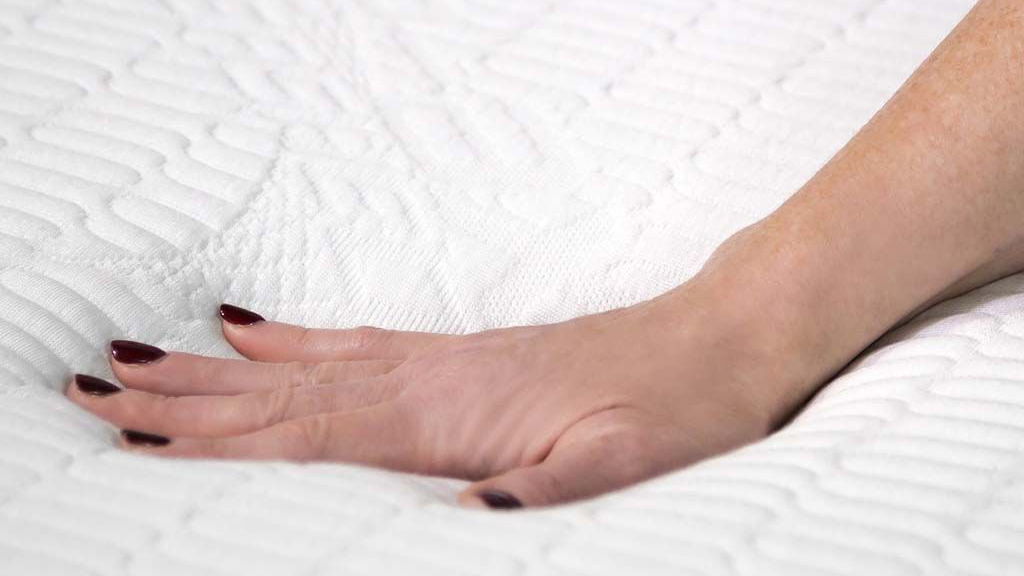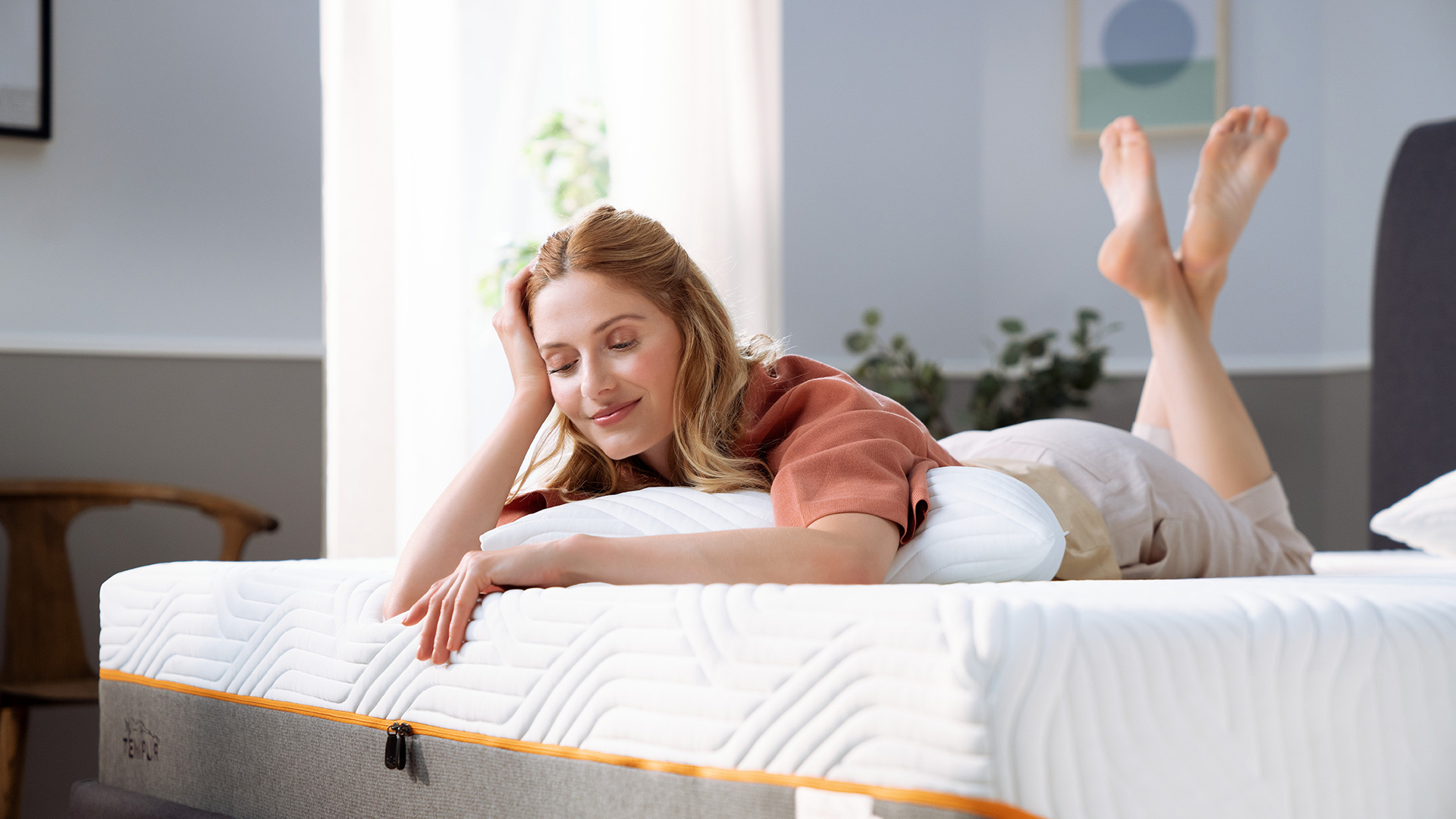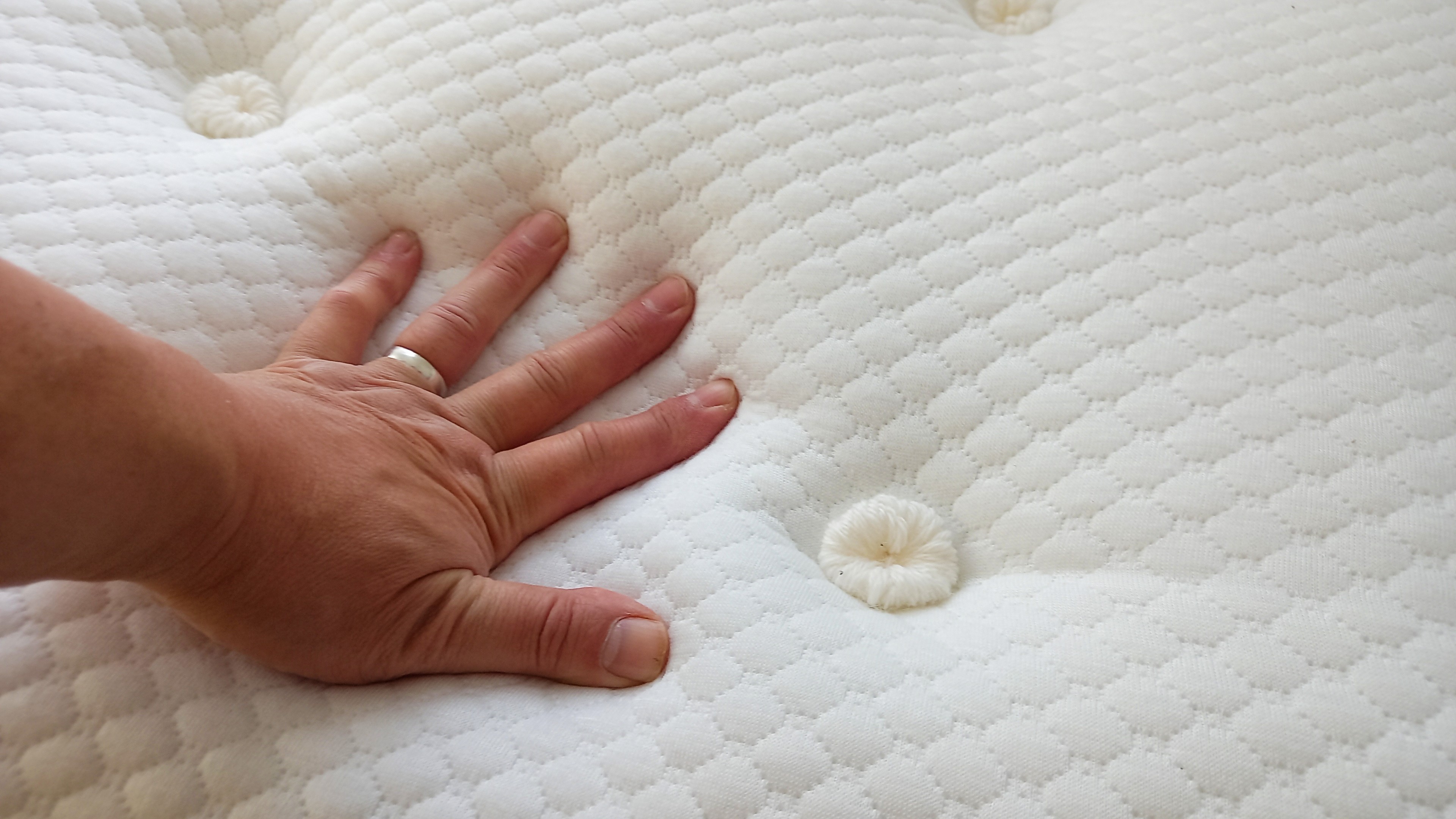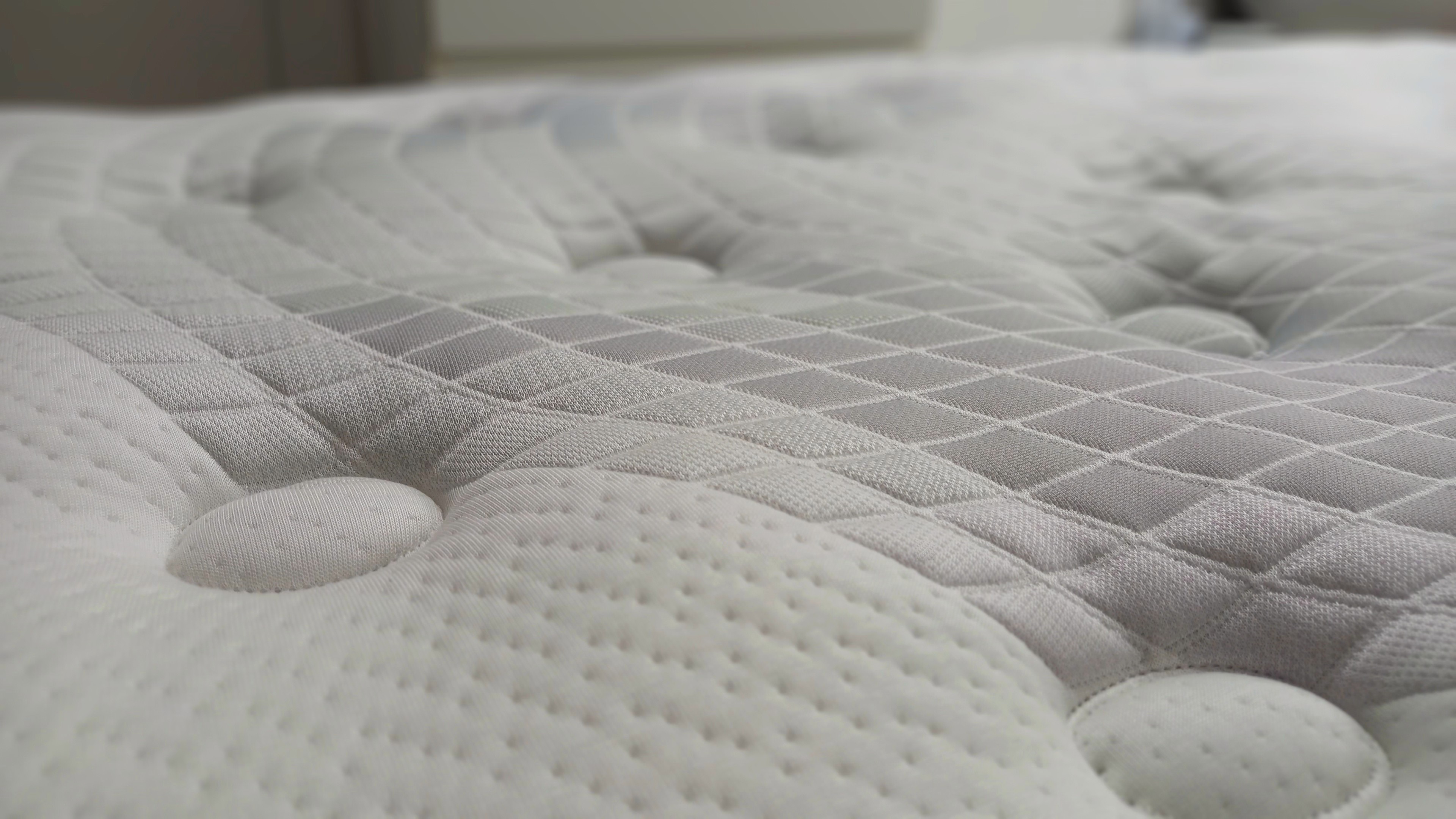How to choose the best mattress firmness level for your needs
Should you pick a soft, medium or firm mattress? We explain the factors to take into account

You'll spend around a third of your life on a mattress; far more than you'll probably ever spend in your car, for example. Therefore, it's worth considering carefully which type of mattress is going to suit you best. Part of that is making sure you choose the right firmness level.
Everyone's different, though, and what's the best mattress for others might prove either too firm or too soft to you. So, how do you go about picking the right firmness level for your particular needs?
To help you out, we'll first take a look at the different types of mattress firmness and what they mean. Then we'll look at how different factors such as your weight and sleeping position determine which level of firmness will suit you best.
What is mattress firmness?

Tempur mattress
Mattress firmness is a measure of how much the mattress compresses when you lie on it. A softer mattress will compress more, while a firmer mattress will compress less.
Generally, mattresses can be categorised into 1 of 6 firmness levels. Soft mattresses are plush and cushiony, and the moment you lie on them, you'll immediately sink into them. While they might seem super comfortable at first, they provide very little support.
Gradually providing more support and less softness are going in order of firmness: medium-soft, medium, medium-firm, firm and extra-firm. Extra-firm mattresses provide the most support and you'll feel more like you're lying 'on' the mattress than sinking 'in' to it.
Firmness is usually described as somewhere on a spectrum between 1 and 10, where 1 is the softest and 10 is the firmest. The softest mattresses will be around 3-5, while a firm mattress is typically between 7.5 and 9. However, it's important to note that there is no standardization of this measurement across the industry. So a mattress from one company rated 7 may be softer or firmer than a 7 from another manufacturer.
Get all the latest news, reviews, deals and buying guides on gorgeous tech, home and active products from the T3 experts
Mattress firmness: Factors to take into account

Not sure what level of mattress firmness will suit you best? Here are some factors to consider that will help you choose.
1. Your weight
The more you weigh, the more pressure you will put on the mattress, which can cause it to sag. That means heavier people will generally need a firmer mattress than lighter people. If you weigh over 230 pounds, check out our guide to the best mattress for heavy people.
2. Your sleeping position
If you're a back sleeper, you'll need a mattress that provides good support for your back. If it's too soft, your spine will curve into too much of a U shape. For this reason, a medium-firm to firm mattress will often be best.
The best mattress for side sleepers is one that's soft enough to let your hips and shoulders sink into the mattress. For this reason, a medium-soft to medium-firm mattress will often be best.
If you're a stomach sleeper, a mattress that's too soft will also mean you curve into a U shape. For this reason, a firm mattress will often be best. Finally, if you're a combination sleeper, you should choose based on the position you spend most time in. If there isn't one, medium-firm will usually be the best compromise.
3. Sleeping habits
If you are a hot sleeper (i.e., you tend to overheat on a warm night), you probably want to avoid softer mattresses. These tend to be less cooling because you sink more into them, compressing the material and reducing airflow within the mattress.
If you move around a lot at night, a firmer mattress makes it easier to change positions. In a similar light, couples often prefer a firmer mattress, as this makes it less likely you'll wake each other when you move during the night.
4. Health conditions
If you have a specific health condition that affects your sleep, such as back pain, then addressing this should be your top priority when it comes to choosing mattress firmness. Your doctor, therapist or osteopath should be able to advise you about what level of firmness will suit you specifically. Also check out our general guide to the best mattress for back pain.
5. Personal preferences
If you've enjoyed a particular level of mattress firmness all your life, and it's given you no specific problems, then why reinvent the wheel? As long as your body is happy with it and you're getting a good night's sleep, feel free to ignore all of the above!
How to test mattress firmness

Sealy Elevate Ultra Antuco mattress
As we mentioned earlier, there is no standardized system for measuring mattress firmness. Which means a mattress that's described as 'medium' by one company may actually have the same firmness as one described as 'medium-soft' by another.
Ultimately, it's best to test a mattress by simply lying on it. If you feel like you're sinking too far into the mattress, it's too soft. If you feel like you're floating on top of the mattress, it's too firm.
You don't necessarily need to go to a showroom to do this, because most online mattress firms now offer generous free trial periods, typically between 100-200 days. Also note that you can make an existing mattress firmer or softer by adding one of the best mattress toppers.
This might all sound like a lot of hassle. But choosing the right mattress firmness is important for getting a good night's sleep. By taking the time to weigh up your individual needs and preferences, and trying out the mattress in person, you should be able to find a level of firmness that's right for you and helps you wake up feeling refreshed and energised.

Tom May is a freelance writer and author of the book, Great Ted Talks: Creativity. He has been editor of Professional Photography magazine, associate editor at Creative Bloq, and deputy editor at net magazine. He has also worked for a wide range of mainstream titles including Radio Times, NME, Heat, Company and Bella.
